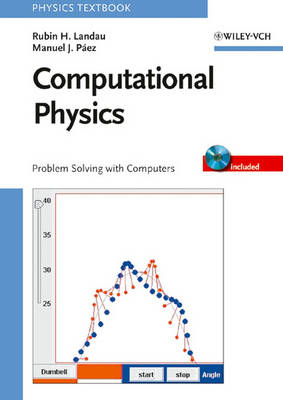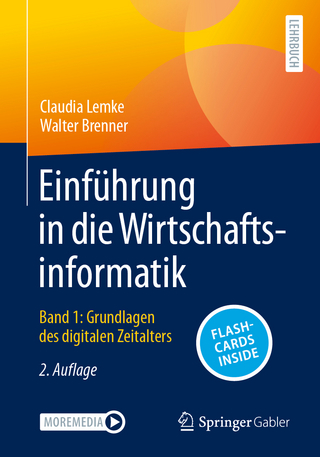
Computational Physics
John Wiley & Sons Inc (Verlag)
978-0-471-11590-8 (ISBN)
- Titel ist leider vergriffen;
keine Neuauflage - Artikel merken
Help students master real-world problems as they develop new insight into the physical sciences Problems in the physical sciences that once baffled and frustrated scientists can now be solved easily with the aid of a computer. Computers can quickly complete complex calculations, provide numerical simulations of natural systems, and explore the unknown. Computational Physics shows students how to use computers to solve scientific problems and understand systems at a level previously possible only in a research environment. Adaptable to a ten-week class or a full-year course, it provides C and Fortran programs that can be modified and rewritten as needed to implement a wide range of computational projects. Light on theory, heavy on applications, this practical, easy-to-understand guide Presents material from a problem-oriented perspective Integrates physics, computer science, and numerical methods and statistics Encourages creative thinking and an object-oriented view of problem solving Provides C and Fortran programs for implementing most of the projects Provides samples of problems actually solved in two ten-week quarters Includes a 3.5
'' floppy disk containing the codes featured in the text Offers multimedia demonstrations and updates on a complementary Web site With this engaging book as a guide, advanced undergraduates and first-year graduate students will gain confidence in their abilities and develop new insight into the physical sciences as they use their computers to address challenging and stimulating problems.
Rubin H. Landau, Phd, is a professor in the Department of Physics at Oregon State University in Corvallis. He teaches the course in computational physics, helps direct the Northwest Alliance for Computational Science and Engineering, and has been using computers in theoretical physics research for the past 30 years. The author of more than 70 refereed publications, he is the author of Quantum Mechanics II and A Scientist's and Engineer's Guide to Workstations and Supercomputers, both available from Wiley. Manuel J. Paez, PhD, is a professor in the Department of Physics at the University of Antioquia in Medellin, Colombia. He teaches courses in computational physics, programming, and nuclear physics. He and Professor Landau have conducted pioneering computational investigations in the interactions of mesons and nucleons with nuclei.
Partial table of contents: GENERALITIES. Computing Software Basics. Errors and Uncertainties in Computations. APPLICATIONS. Data Fitting. Deterministic Randomness. Monte Carlo Applications. Differentiation. Differential Equations and Oscillations. Anharmonic Oscillations. Unusual Dynamics of Nonlinear Systems. Differential Chaos in Phase Space. Matrix Computing and Subroutine Libraries. Bound States in Momentum Space. Computing Hardware Basics: Memory and CPU. High-Performance Computing: Profiling and Tuning. Object-Oriented Programming: Kinematics. Thermodynamic Simulations: The Ising Model. Fractals. PARTIAL DIFFERENTIAL EQUATIONS. Heat Flow. Waves on a String. NONLINEAR PARTIAL DIFFERENTIAL EQUATIONS. Solitons, The KdeV Equation. Confined Electronic Wave Packets. Appendices. Glossary. References. Index.
| Erscheint lt. Verlag | 27.8.1997 |
|---|---|
| Zusatzinfo | Illustrations |
| Verlagsort | New York |
| Sprache | englisch |
| Maße | 240 x 165 mm |
| Gewicht | 879 g |
| Einbandart | gebunden |
| Themenwelt | Informatik ► Office Programme ► Outlook |
| Mathematik / Informatik ► Informatik ► Theorie / Studium | |
| Naturwissenschaften ► Physik / Astronomie ► Allgemeines / Lexika | |
| ISBN-10 | 0-471-11590-8 / 0471115908 |
| ISBN-13 | 978-0-471-11590-8 / 9780471115908 |
| Zustand | Neuware |
| Haben Sie eine Frage zum Produkt? |
aus dem Bereich



